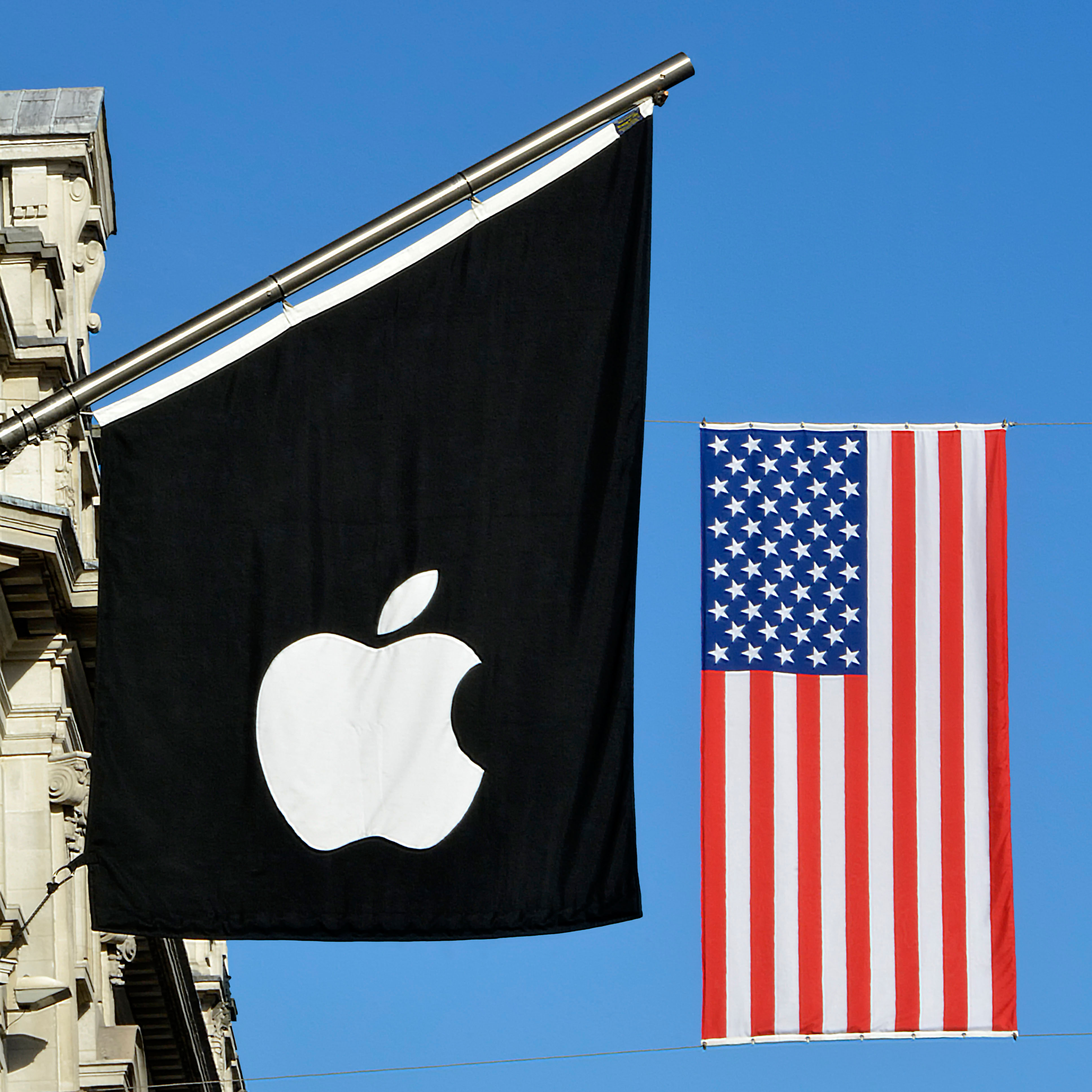Bringing Apple's vast profits back to America
Apple plans to repatriate 'the vast majority' of the $252 billion it has hoarded overseas

A free daily email with the biggest news stories of the day – and the best features from TheWeek.com
You are now subscribed
Your newsletter sign-up was successful
The smartest insight and analysis, from all perspectives, rounded up from around the web:
Apple's cash is coming home, said Daisuke Wakabayashi and Brian Chen at The New York Times. The tech giant announced last week that it plans to repatriate "the vast majority" of the $252 billion it has hoarded overseas and will make a one-time tax payment of $38 billion. The company also pledged to create 20,000 new U.S. jobs and make $30 billion in U.S. capital expenditures over the next five years, including for a new corporate campus. Apple didn't explicitly say its decision was the result of Congress slashing the corporate tax rate from 35 percent to 21 percent, but President Trump "seized on the opportunity to take credit," said Jordan Weissmann at Slate. "Great to see Apple follow through as a result of TAX CUTS," the president tweeted. Apple CEO Tim Cook later said that "large parts" of the plan were thanks to tax cuts and "large parts" would have happened anyway. But Trump has made clear "it behooves any corporation that wants favorable treatment to tie all of their investment decisions to the GOP's tax bill, no matter how tenuous."
These are "attention-getting numbers," but Apple's move actually comes "at a hefty cost to taxpayers," said Chris Macke at The Hill. Because the GOP tax law allows companies to bring money home at lower tax rates — 15.5 percent on cash holdings and 8 percent on non-liquid assets — Apple will save as much as $50 billion in taxes that it would otherwise have owed. Trading that $50 billion in return for 20,000 jobs winds up costing the American taxpayer "more than $2.4 million per job." Apple "wants to be congratulated" for bringing its money home and for paying what it calls a "record" repatriation tax bill, said Michael Hiltzik at the Los Angeles Times. But it's a record bill because Apple has been "a world champion at global tax avoidance," parking profits for years in low-tax Ireland and the tiny island of Jersey. The company "gambled that it could wait out the U.S. government until a tax amnesty came about." The bet clearly paid off in Apple's favor.
The Week
Escape your echo chamber. Get the facts behind the news, plus analysis from multiple perspectives.

Sign up for The Week's Free Newsletters
From our morning news briefing to a weekly Good News Newsletter, get the best of The Week delivered directly to your inbox.
From our morning news briefing to a weekly Good News Newsletter, get the best of The Week delivered directly to your inbox.
Give Trump credit where credit is due, said Bret Stephens at The New York Times. The U.S. is about to get a $38 billion tax windfall, thousands of new jobs, and a new Apple campus. That's "not too shabby, especially considering all the hyperbolic predictions of economic doom that went with Trump's election." Don't miss the long game here, said Kevin Williamson at National Review. Thanks to corporate tax reform, the U.S. has overnight become a more attractive place to do business. With a lower corporate rate and a move to a territorial tax system, we're providing the economy with the conditions to help lots of new Apples grow and succeed. Apple's returning cash is just "the residue — welcome residue! — of deals already done." It was low-hanging fruit. The smarter question is, after tax reform, "what has been planted?"
A free daily email with the biggest news stories of the day – and the best features from TheWeek.com
-
 What is the endgame in the DHS shutdown?
What is the endgame in the DHS shutdown?Today’s Big Question Democrats want to rein in ICE’s immigration crackdown
-
 ‘Poor time management isn’t just an inconvenience’
‘Poor time management isn’t just an inconvenience’Instant Opinion Opinion, comment and editorials of the day
-
 Bad Bunny’s Super Bowl: A win for unity
Bad Bunny’s Super Bowl: A win for unityFeature The global superstar's halftime show was a celebration for everyone to enjoy
-
 The pros and cons of noncompete agreements
The pros and cons of noncompete agreementsThe Explainer The FTC wants to ban companies from binding their employees with noncompete agreements. Who would this benefit, and who would it hurt?
-
 What experts are saying about the economy's surprise contraction
What experts are saying about the economy's surprise contractionThe Explainer The sharpest opinions on the debate from around the web
-
 The death of cities was greatly exaggerated
The death of cities was greatly exaggeratedThe Explainer Why the pandemic predictions about urban flight were wrong
-
 The housing crisis is here
The housing crisis is hereThe Explainer As the pandemic takes its toll, renters face eviction even as buyers are bidding higher
-
 How to be an ally to marginalized coworkers
How to be an ally to marginalized coworkersThe Explainer Show up for your colleagues by showing that you see them and their struggles
-
 What the stock market knows
What the stock market knowsThe Explainer Publicly traded companies are going to wallop small businesses
-
 Can the government save small businesses?
Can the government save small businesses?The Explainer Many are fighting for a fair share of the coronavirus rescue package
-
 How the oil crash could turn into a much bigger economic shock
How the oil crash could turn into a much bigger economic shockThe Explainer This could be a huge problem for the entire economy